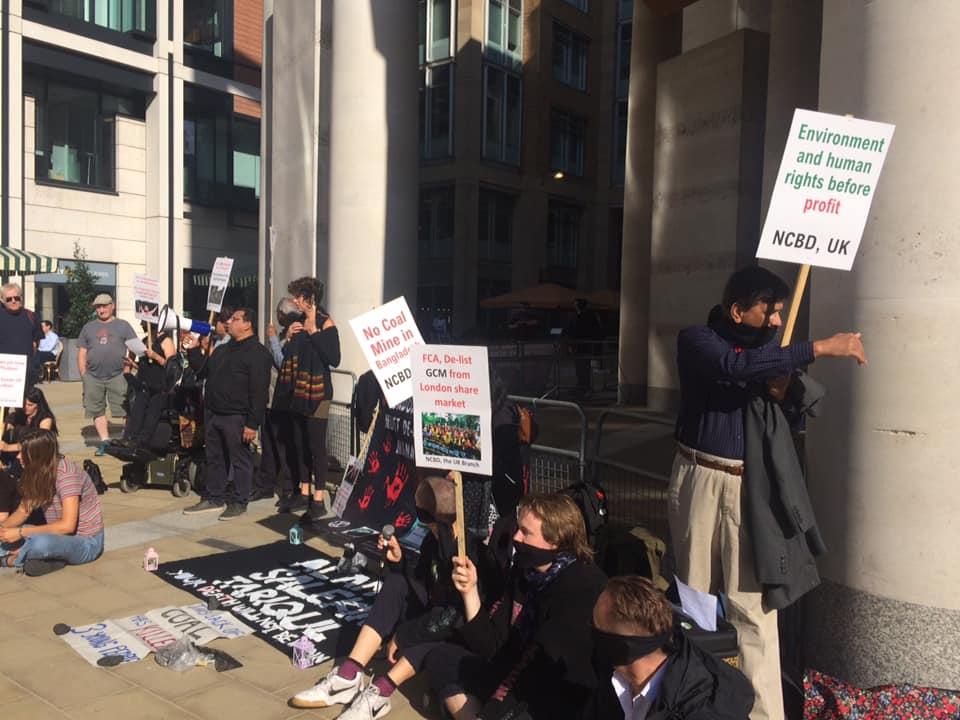Bangladeshi campaigners fight mining giant for justice
Helen Pattison, East London Socialist Party
Shouts of “GCM, shame on you, Gary Lye [Chief Officer], shame on you” rang out around the square outside the London Stock Exchange on 22 August.
Over a decade ago Global Coal Management (GCM – then called Asia Energy) planned an open coal mine in Phulbari, Bangladesh. The company originally got permission for the mine from the government, despite the huge impact it would have. It would have displaced around 130,000 people, destroyed farm land and jeopardised water supplies.
Killings
In 2006 mass peaceful protests of tens of thousands of people and strikes against the destruction of the area were met with paramilitary violence and three teenage bystanders lost their lives, along with three adults.
Given that GCM had its mining rights removed in Bangladesh and people were killed during the movement against the mines, campaigners want the London Stock Exchange to refuse to allow GCM to trade though them.
Despite many examples of clashes between mining companies, strikers and ordinary people, a company has never been de-listed from the LSE either for the death of protesters or the destruction of the environment. Lots of speakers focused on the drive for profit by big business, destroying people’s livelihoods and health in the process.
13 years after the movement began, campaigners are still worried that GCM wants to mine in Bangladesh. In 2009 US officials tried to pressure the Bangladesh government to reopen the project with GCM.
From the Marikana massacre in South Africa, Bolsonaro in Brazil, to Kudankulam Nuclear Power Plant in Tamil Nadu, India… under capitalism, the drive for profit will always come before ordinary people’s livelihoods and health.









